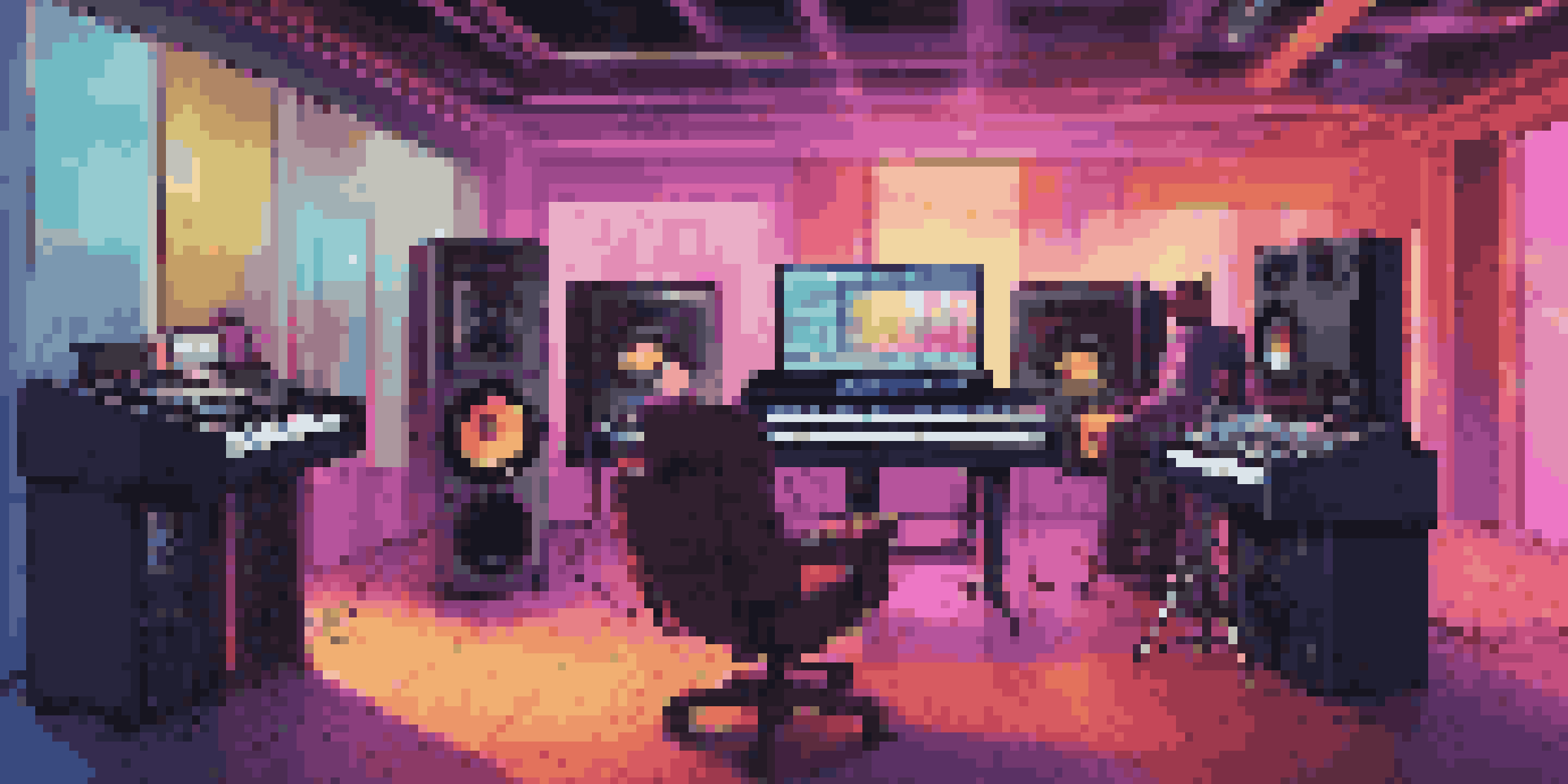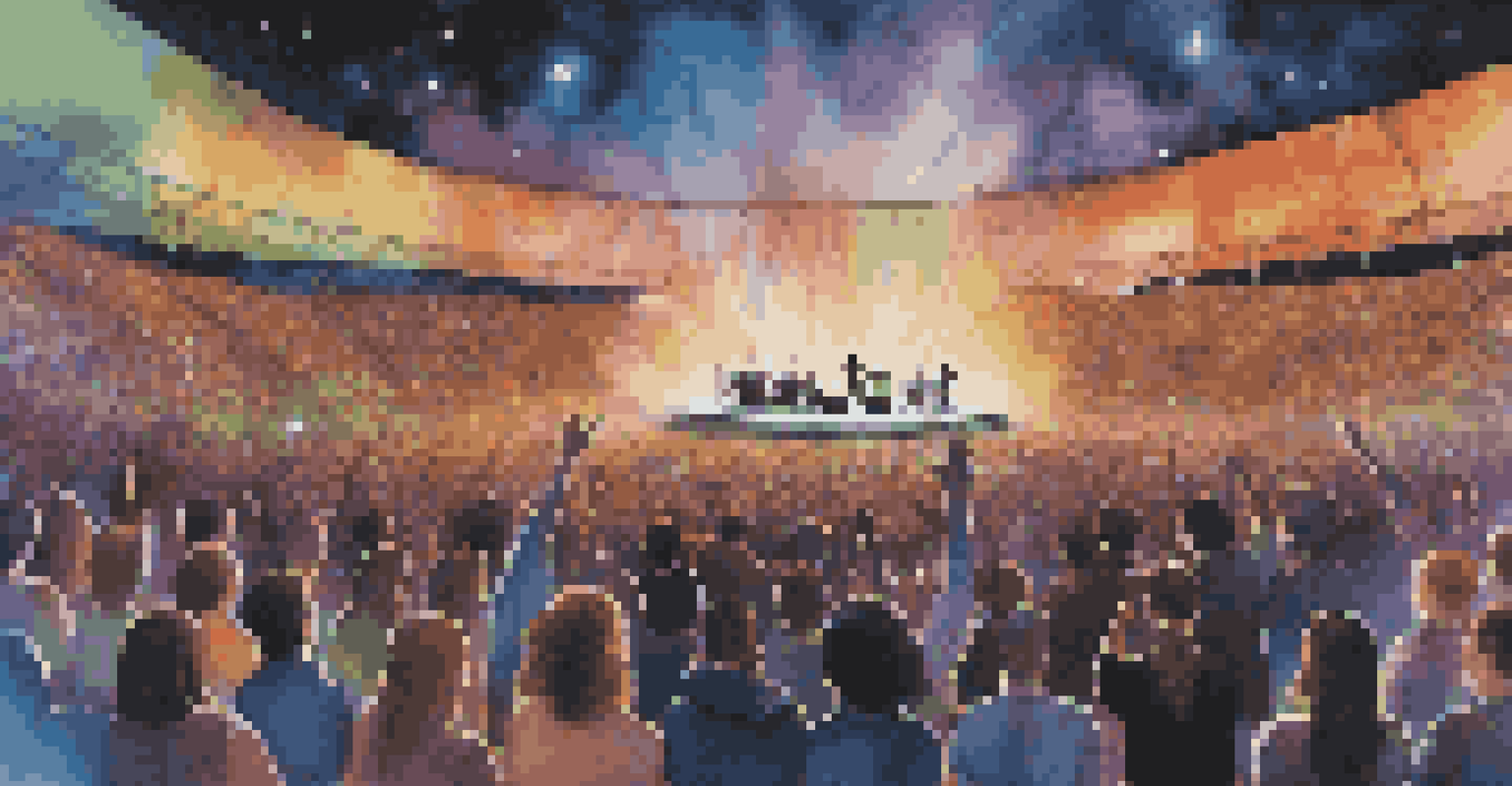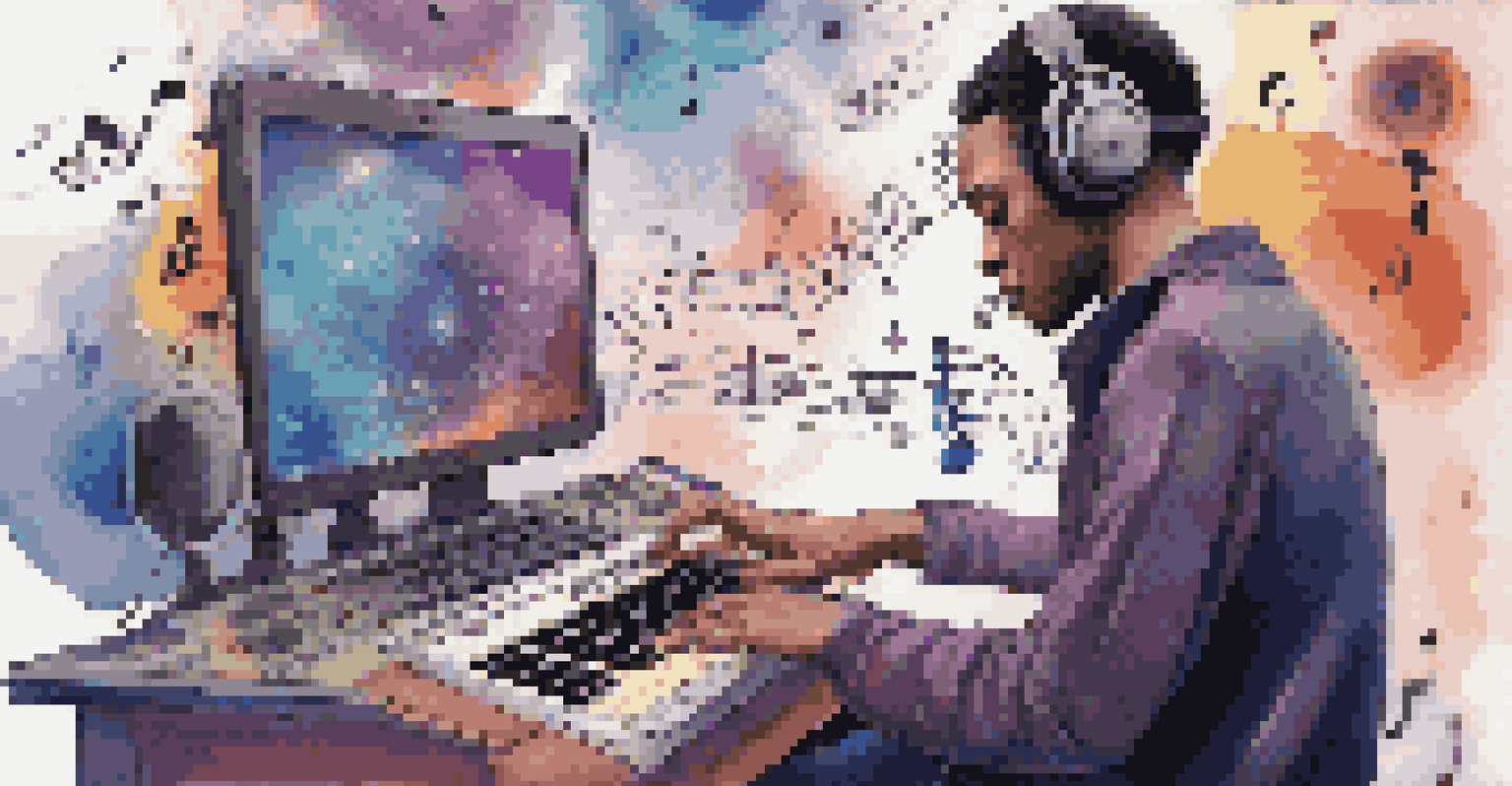The Intersection of Music and Artificial Intelligence: A Deep Dive

Understanding Artificial Intelligence in Music Creation
Artificial Intelligence (AI) is revolutionizing music creation by analyzing vast datasets to generate new sounds and compositions. Musicians now have tools at their disposal that can create melodies, harmonies, and entire tracks, often in a matter of minutes. This technology allows artists to explore uncharted territories in their work, pushing the boundaries of creativity. For instance, AI-driven platforms like OpenAI's MuseNet can compose music in various genres, mimicking the styles of famous composers.
Artificial Intelligence is the new electricity.
One of the most exciting aspects of AI in music is its ability to learn from existing works. By studying patterns, structures, and styles, AI can produce pieces that resonate with listeners while offering something refreshingly unique. This intersection of technology and creativity invites musicians to collaborate with machines, blending human emotion with algorithmic precision. The result? A rich tapestry of sound that might not have been possible without this technological advancement.
However, it’s essential to recognize that AI is a tool, not a replacement for human creativity. While it can generate music, the emotional depth and personal touch that musicians bring to their work are irreplaceable. As we delve deeper into this topic, we’ll explore how artists are using AI to enhance their creative processes rather than replace them.
The Role of AI in Music Production and Mixing
Beyond composition, AI is also transforming music production and mixing. Traditional mixing can be a tedious and time-consuming process, often requiring a high level of technical skill and experience. Enter AI-driven tools that analyze audio tracks and suggest optimal mixing settings or even automate parts of the mixing process. This allows producers to focus more on the creative aspects of their projects.

For example, platforms like LANDR use AI to master tracks, providing artists with professional-sounding audio without needing extensive technical knowledge. This democratization of music production means that more artists can bring their visions to life, regardless of their backgrounds or resources. It’s a game-changer for independent musicians looking to compete in a crowded marketplace.
AI Enhances Music Creation
Artificial Intelligence is transforming music creation by enabling artists to generate unique compositions and explore new creative avenues.
However, this raises questions about the future of traditional sound engineering roles. As AI tools become more sophisticated, how will they shape the job landscape for producers and sound engineers? While some may see AI as a threat, others view it as an opportunity to enhance their skill sets and work alongside technology.
AI's Impact on Music Distribution and Marketing
AI is not just changing how music is created; it's also reshaping how it's distributed and marketed. Algorithms play a crucial role in curating playlists on streaming platforms, ensuring that listeners discover music that aligns with their tastes. This personalized approach to music discovery can significantly boost an artist's visibility and reach.
Music is the shorthand of emotion.
For instance, Spotify’s recommendation system uses AI to analyze user behavior and suggest songs, creating a unique listening experience for each individual. This means that even lesser-known artists can find their audience through tailored recommendations. As a result, the traditional marketing strategies are evolving, with a greater focus on data-driven approaches.
Moreover, AI can help artists understand their audience better through analytics, providing insights into listener demographics and engagement. This data allows musicians to tailor their marketing strategies more effectively, leading to stronger fan connections. In this way, AI serves as both a tool for discovery and a means of fostering deeper relationships between artists and their fans.
Ethical Considerations in AI-Generated Music
As AI continues to play a significant role in music, ethical considerations come to the forefront. Questions arise about copyright, ownership, and the authenticity of music created by machines. If an AI composes a song, who holds the rights? Is it the developer of the AI, the user who prompted it, or the AI itself? These questions are prompting discussions within the music industry that could redefine authorship.
Another layer of complexity comes from the potential for AI to replicate the styles of established artists. This raises concerns about originality and the risk of creating music that lacks genuine human emotion. While AI can analyze and mimic styles, it cannot replicate the experiences and feelings that inspire musicians. Therefore, maintaining a balance between innovation and authenticity is crucial.
AI Streamlines Music Production
AI tools are revolutionizing the music production process, allowing artists to focus on creativity by automating aspects of mixing and mastering.
The industry must navigate these ethical waters carefully. Establishing clear guidelines for AI-generated content and promoting transparency in the creation process can help protect artists' rights while still embracing technological advancements. The ongoing dialogue about these issues is essential for shaping a fair and equitable future in music.
AI and the Evolution of Live Music Experiences
The rise of AI is also influencing the live music experience. With advancements in technology, artists can now create immersive performances that blend music with visuals and interactive elements. AI can analyze audience reactions in real-time, allowing performers to adjust their sets based on crowd energy, creating a more engaging experience.
For example, some concerts now utilize AI-generated visuals that respond to the music, enhancing the overall atmosphere. This fusion of live performance and technology can elevate the audience's experience, making it more memorable and dynamic. As artists continue to experiment with these new tools, we may see entirely new genres of live music emerge.
However, this shift also raises questions about the future of traditional live performances. Will the human element be overshadowed by technology? While AI can enhance the experience, it’s crucial to remember that live music is fundamentally about connection—between the artist and the audience. Finding harmony between AI innovations and the human touch will be key to the future of live music.
Collaborations Between Musicians and AI Companies
As the relationship between music and AI evolves, collaborations between musicians and AI companies are becoming more common. Artists are increasingly partnering with tech firms to develop tools that enhance their creative processes. These collaborations can lead to groundbreaking innovations, pushing the boundaries of what is possible in music.
For instance, some musicians are working with AI developers to create custom algorithms that reflect their unique style. This personalized approach allows artists to maintain their authenticity while exploring new creative avenues. By bridging the gap between technology and artistry, these collaborations can redefine the music landscape.
AI Shapes Music Distribution
AI is reshaping music distribution and marketing through personalized algorithms that enhance music discovery and audience engagement.
Moreover, such partnerships can also lead to the creation of new genres and forms of music. As musicians and technologists work together, they share insights and perspectives that can inspire fresh ideas. This synergy not only benefits the artists involved but also enriches the broader music community, opening doors to exciting new possibilities.
The Future of Music: AI's Role in Shaping Trends
Looking ahead, the role of AI in music is likely to expand even further, shaping trends and influencing how we experience music. As technology continues to advance, we may see AI playing an even more significant role in crafting songs, producing tracks, and even curating live events. This evolution could lead to entirely new musical forms that blend human and machine creativity.
Moreover, as AI becomes more integrated into the music industry, the potential for collaboration across genres and cultures increases. Musicians from different backgrounds can utilize AI to experiment with styles outside their traditional influences, fostering a rich exchange of ideas and sounds. This cross-pollination can lead to innovative music that resonates with a global audience.

Ultimately, the future of music in an AI-driven world will depend on how artists and industry professionals embrace these technologies. By striking a balance between human creativity and machine learning, the music industry can evolve in ways that enrich the art form while honoring the emotional connections that music brings.